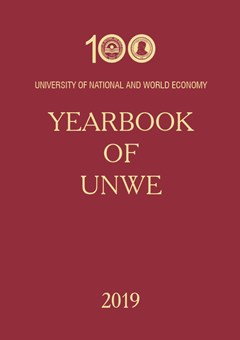Important Referents and Post-Materialist Values Guide Intentions to Boycott
Important Referents and Post-Materialist Values Guide Intentions to Boycott
Author(s): Antonia Delistavrou, Irene TILIKIDOUSubject(s): Social Sciences, Economy, Psychology, Sociology, Social psychology and group interaction, Applied Sociology, Socio-Economic Research
Published by: Университет за национално и световно стопанство (УНСС)
Keywords: Boycotting; Theory of Planned Behaviour (TPB); post-materialism
Summary/Abstract: Introduction: Although boycotting campaigns have been recently increasing, limited academic research has been focused on the antecedents of consumers’ participation.Research objective and tasks: This study aimed to examine the Greek consumers' intentions to boycott "unethical" super market products by an extended model of Theory of Planned Behaviour, in which Post-materialism was incorporated as a background factor.Applied methodology: A survey was conducted to a stratified sample of 420 residents through personal interviews. Structural equation modelling was performed to analyse the data.Major results achieved: TPB was found powerful to explain boycotting intentions. Findings (conclusions): Consumers, who more strongly intent to boycott were found to be more affected by social norms than by attitudes and perceived controllability. These consumers, hold stronger behavioral, normative and control beliefs while they attach greater importance to post-materialist values than their counterparts do.Research restrictions and consequences: Control for social desirability should be taken care of in future research efforts, which should employ national or multinational samples. Other psychographics’ or demographics’ ability to influence consumers’ beliefs or/and attitudes, norms and perceived control could be further investigated.Practical consequences: Companies, which try to avoid potential boycotts should aim to build a corporate profile supportive of post-materialist values, i.e. supportive of social change for a friendlier and less impersonal society. Communication efforts should primarily aim to diminish the social influence towards boycotting as well as decrease the consumers’ positive attitudes and perceived controllability over participation in boycotting.Originality/value: In this study TPB was expanded by the incorporation of values, i.e. Post-materialism, as a background factor. Further, this research has been undertaken for the first time in the context of Greece.
Journal: Годишник на УНСС
- Issue Year: 2019
- Issue No: 1
- Page Range: 69-98
- Page Count: 30
- Language: English

